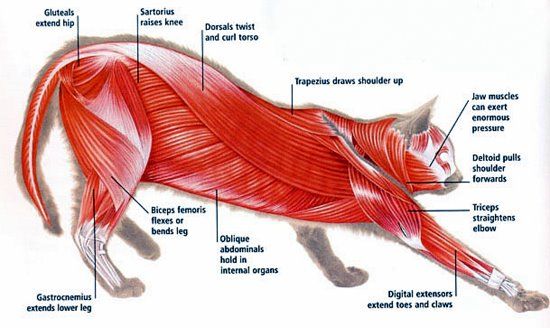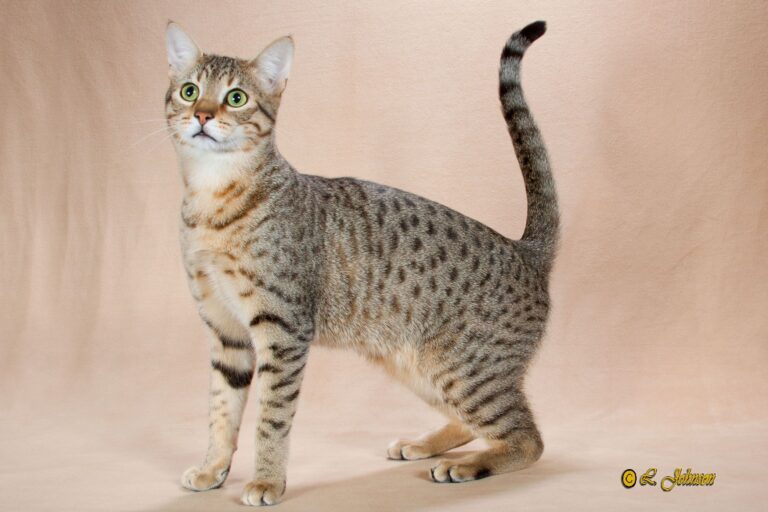Holistic cat health care
Understanding the Feline Physiology and Behavior
The feline physiology is a fascinating subject that encompasses the study of a cat’s body structure and its various functions. Cats are known for their agility and grace, which is attributed to their unique anatomy. Their flexible spine allows them to twist and turn effortlessly, while their retractable claws enable them to climb and pounce with precision. Moreover, their keen sense of hearing and superior night vision enhance their hunting abilities, reflecting their natural instinct as predators.
Understanding feline behavior is equally important in fostering a strong bond with our furry companions. Cats communicate through a variety of vocalizations, body language, and facial expressions. For example, a purring sound indicates contentment and relaxation, whereas a hiss or growl signifies aggression or fear. Additionally, a cat’s tail can convey various emotions, with an elevated tail suggesting confidence and a lowered tail indicating insecurity or submission. By deciphering these subtle cues, we can better appreciate and respond to our cats’ needs, ensuring a harmonious coexistence.
Proper Nutrition for Optimal Cat Health
Proper nutrition is essential for maintaining optimal health in cats. Just like humans, cats require a balanced diet that meets their specific nutritional needs. Feeding them high-quality cat food that is specifically formulated for their life stage and health condition is crucial. This ensures they receive the right amount of proteins, carbohydrates, fats, vitamins, and minerals to support their overall well-being.
A cat’s diet should primarily consist of high-quality protein, as they are obligate carnivores. This means that their bodies require certain nutrients found only in animal tissues, such as taurine and arachidonic acid. These nutrients are vital for maintaining a healthy heart, eyes, and reproductive system in felines. It is important to avoid feeding them a diet that is predominantly plant-based, as it may not provide all the essential nutrients they need to thrive.
The Role of Natural Supplements in Cat Health
Natural supplements can play a significant role in ensuring the overall health and well-being of our feline friends. These supplements are derived from natural sources and are designed to complement a cat’s diet to address specific health concerns. From improving joint mobility to promoting a healthy coat and skin, natural supplements can provide the additional nutrients and support that cats need.
One commonly used natural supplement for cats is fish oil, which is rich in omega-3 fatty acids. These fatty acids have been shown to help reduce inflammation and support a healthy cardiovascular system. By including fish oil in a cat’s diet, owners can potentially help prevent or manage conditions such as arthritis and improve their cat’s overall joint function. However, it is important to consult with a veterinarian before introducing any supplement to a cat’s diet to ensure the correct dosage and potential interactions with other medications.
The Importance of Regular Exercise for Cats
Regular exercise is an essential aspect of a cat’s overall health and well-being. Just like humans, cats need physical activity to maintain their physical and mental health. Engaging in regular exercise helps to prevent obesity, which can lead to a myriad of health problems in felines. It also promotes healthy digestion, improves muscle tone, and increases cardiovascular endurance.
One of the simplest ways to encourage exercise in cats is by providing them with interactive toys and playtime. Toys that are designed to mimic prey, such as feather wands or laser pointers, can stimulate a cat’s hunting instincts and get them moving. Additionally, setting aside at least 10-15 minutes each day for interactive play with your cat can go a long way in keeping them active and engaged. Whether it’s chasing a toy or pouncing on a motion-controlled gadget, regular exercise helps cats maintain a healthy weight and reduces the risk of developing various health issues.
Environmental Enrichment for a Holistic Approach
Creating a stimulating environment for your feline friend is essential for their overall well-being. Environmental enrichment plays a crucial role in promoting a holistic approach to cat health. By providing a range of mental and physical stimuli, you can help satisfy your cat’s natural instincts, minimize stress, and prevent behavioral issues.
One method of environmental enrichment is to offer interactive toys that tap into your cat’s hunting instincts. Toys that mimic prey, such as feather wands or puzzle feeders, can keep them engaged and mentally stimulated. Additionally, rotating toys and introducing new ones can prevent boredom and maintain their interest. Incorporating vertical spaces, such as cat trees or wall-mounted shelves, allows them to explore their environment from different perspectives, satisfying their natural urge for climbing and observing.
Preventive Measures for Common Cat Health Issues
Obtaining a feline companion comes with the responsibility of ensuring their health and well-being. By implementing preventive measures, cat owners can significantly minimize the risk of common health issues, allowing their furry friends to live a long and happy life. One of the most important preventive steps is to prioritize regular vaccinations. Vaccinations protect cats from infectious diseases such as feline panleukopenia, rhinotracheitis, and calicivirus. These vaccines stimulate the cat’s immune system to recognize and fight off potential threats, effectively reducing the chances of contracting these illnesses. It is crucial for cat parents to consult with a veterinarian and establish a vaccination schedule suitable for their furry friend’s needs.
Alongside vaccinations, maintaining a flea and tick prevention routine is paramount in preventing common cat health issues. Fleas and ticks not only cause discomfort and itching to cats but can also transmit various diseases. Using flea and tick prevention products recommended by a veterinarian can significantly decrease the likelihood of infestations and reduce the risk of diseases such as Lyme disease and Bartonella infection. Regular grooming, including combing and checking for any signs of fleas or ticks, can aid in early detection and prompt treatment. Additionally, keeping the environment clean and treating any infestations promptly helps ensure a flea and tick-free living space for cats.
Natural Remedies for Feline Ailments
When faced with a feline ailment, many cat owners are increasingly turning to natural remedies as an alternative to traditional veterinary treatments. These remedies are often seen as a safe and effective way to address common health issues in cats without the potential side effects associated with medications. Natural remedies for feline ailments can include a wide range of options, such as herbal supplements, homeopathic remedies, and specialized diets.
One of the most popular natural remedies for feline ailments is the use of herbal supplements. These supplements, derived from plants, are believed to promote wellness and help alleviate specific health concerns in cats. For instance, chamomile is often used to calm an anxious or stressed cat, while echinacea is thought to support the immune system. It is important to note, however, that not all herbal remedies are safe for cats, and it is crucial to consult with a veterinarian before introducing any new supplement into your cat’s routine.
Another natural remedy that has gained popularity in recent years is the use of homeopathic treatments for feline ailments. Homeopathy operates on the principle of “like cures like” and uses highly diluted substances to stimulate the body’s natural healing processes. This approach is believed to address not just the physical symptoms but also the underlying imbalances that may be causing the ailment. Examples of homeopathic remedies for cats include Arnica for pain relief and Staphysagria for skin irritations. As with herbal supplements, it is important to seek guidance from a qualified veterinarian who is knowledgeable about homeopathic treatments.
Overall, natural remedies for feline ailments offer cat owners an alternative approach to promote their cats’ well-being. However, it is important to remember that not all natural remedies are appropriate for every situation, and consulting with a veterinarian is crucial to ensure the safety and effectiveness of such treatments. When used correctly and under professional guidance, natural remedies can complement traditional veterinary care and contribute to a holistic approach to feline health and wellness.
The Benefits of Regular Veterinary Check-ups
Regular veterinary check-ups are an essential part of maintaining your cat’s overall health and well-being. These visits allow the veterinarian to monitor your cat’s health, identify any potential issues or underlying conditions, and provide appropriate treatment or preventive measures. During a check-up, the vet will perform a thorough physical examination, including checking your cat’s weight, body condition, skin and coat quality, and listening to their heart and lungs. They may also examine the eyes, ears, and teeth, and conduct additional tests such as blood work or urinalysis if necessary.
One of the main benefits of regular veterinary check-ups is the early detection of diseases or health problems. Cats are masters at hiding any signs of illness, and by the time symptoms become evident, the condition may have already progressed significantly. During these check-ups, the vet can detect any abnormalities that might be missed at home, allowing for timely intervention and treatment. Additionally, routine check-ups provide an opportunity to discuss your cat’s behavior, nutritional needs, and lifestyle, enabling the veterinarian to provide personalized advice and recommendations to ensure your cat’s optimal health and happiness.
Why is it important to take my cat for regular veterinary check-ups?
Regular veterinary check-ups are important to ensure the overall health and well-being of your cat. These check-ups help detect any underlying medical conditions, prevent potential health problems, and provide necessary vaccinations and treatments.
How often should I take my cat for veterinary check-ups?
The frequency of veterinary check-ups may vary based on your cat’s age, breed, and overall health. Generally, it is recommended to have an annual check-up for adult cats, while senior cats or those with specific medical conditions may require more frequent visits.
What happens during a veterinary check-up for cats?
During a veterinary check-up, your cat’s vital signs such as temperature, heart rate, and blood pressure will be checked. The veterinarian will also examine your cat’s eyes, ears, teeth, and overall body condition. They may perform additional tests if necessary, such as blood work or X-rays.
Can regular veterinary check-ups prevent serious health issues in cats?
Yes, regular veterinary check-ups can help prevent serious health issues in cats. Early detection of diseases or conditions allows for prompt treatment, increasing the chances of a successful outcome. Vaccinations received during check-ups also protect against common infectious diseases.
What role does proper nutrition play in cat health?
Proper nutrition is essential for optimal cat health. Cats require a balanced diet that includes necessary nutrients, vitamins, and minerals. A veterinarian can provide guidance on choosing a suitable diet for your cat’s specific needs.
Are natural supplements beneficial for cat health?
Natural supplements can play a role in supporting cat health, but it is important to consult with a veterinarian before introducing any supplements. They can provide guidance on the appropriate supplements and dosages based on your cat’s individual needs.
How important is regular exercise for cats?
Regular exercise is crucial for maintaining a healthy weight and preventing obesity in cats. Exercise helps cats stay physically fit, improves their mental well-being, and reduces the risk of certain health problems. Engaging in play sessions and providing interactive toys can help keep your cat active.
What is environmental enrichment for cats, and why is it important?
Environmental enrichment refers to providing a stimulating and engaging environment for cats. It includes providing toys, scratching posts, hiding spots, and interactive playtime. Environmental enrichment is vital for a cat’s overall well-being, as it prevents boredom, reduces stress, and promotes natural behaviors.
What preventive measures can I take to ensure my cat’s health?
Preventive measures for cat health include providing a balanced diet, regular exercise, maintaining a clean and safe environment, and ensuring vaccinations and parasite control. Regular veterinary check-ups are also crucial in identifying and addressing any health issues early on.
Are there any natural remedies for common feline ailments?
Natural remedies, such as herbal supplements or homeopathic treatments, may be available for certain feline ailments. However, it is important to consult with a veterinarian before using any natural remedies, as they can advise on the safety, effectiveness, and appropriate usage for your cat.







